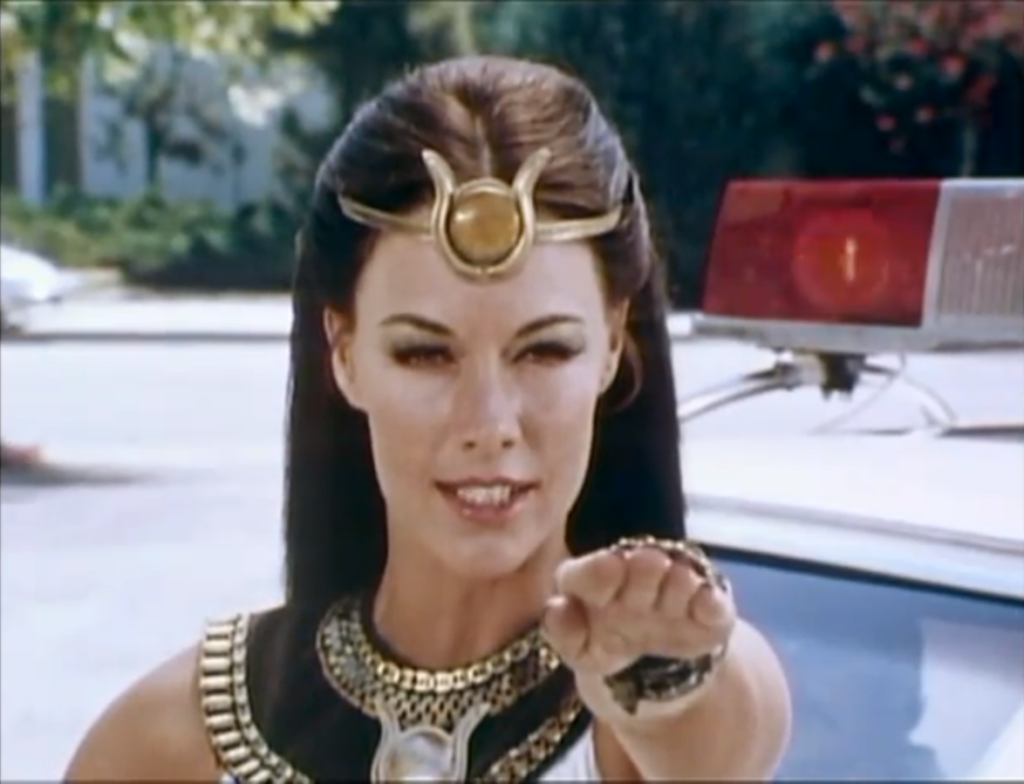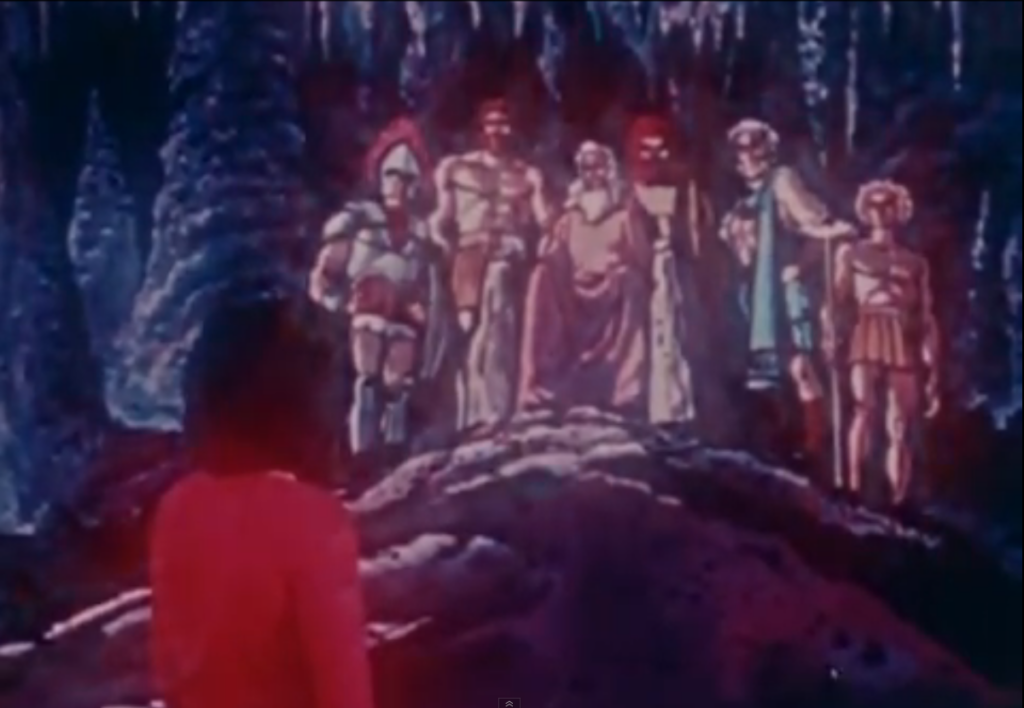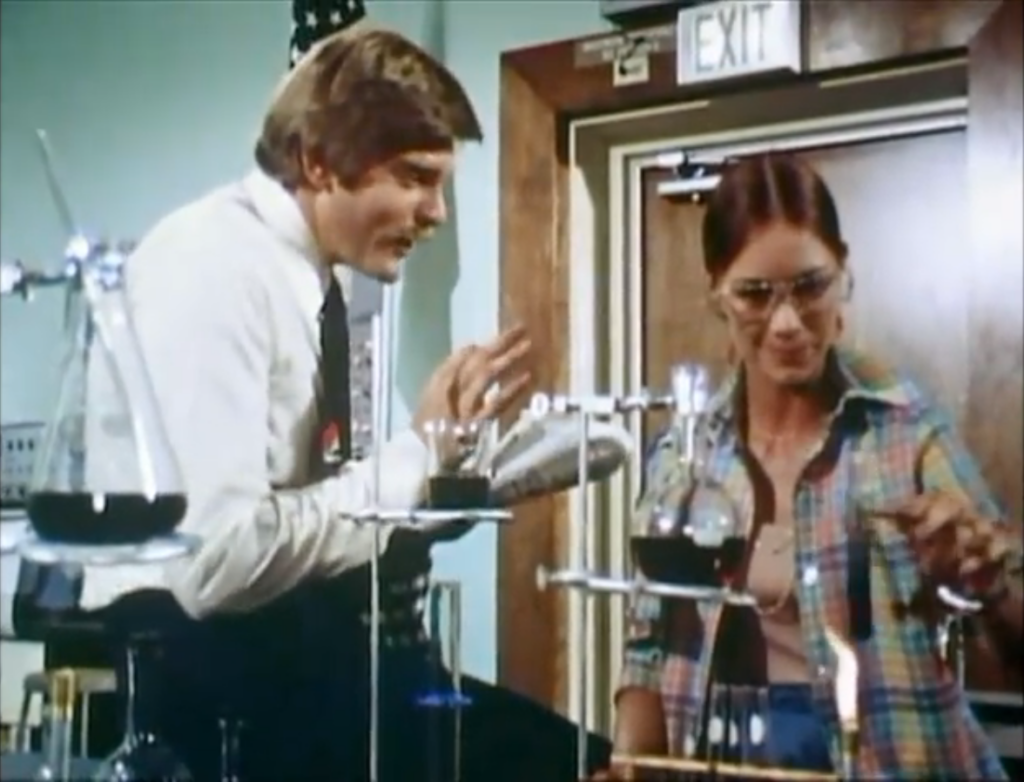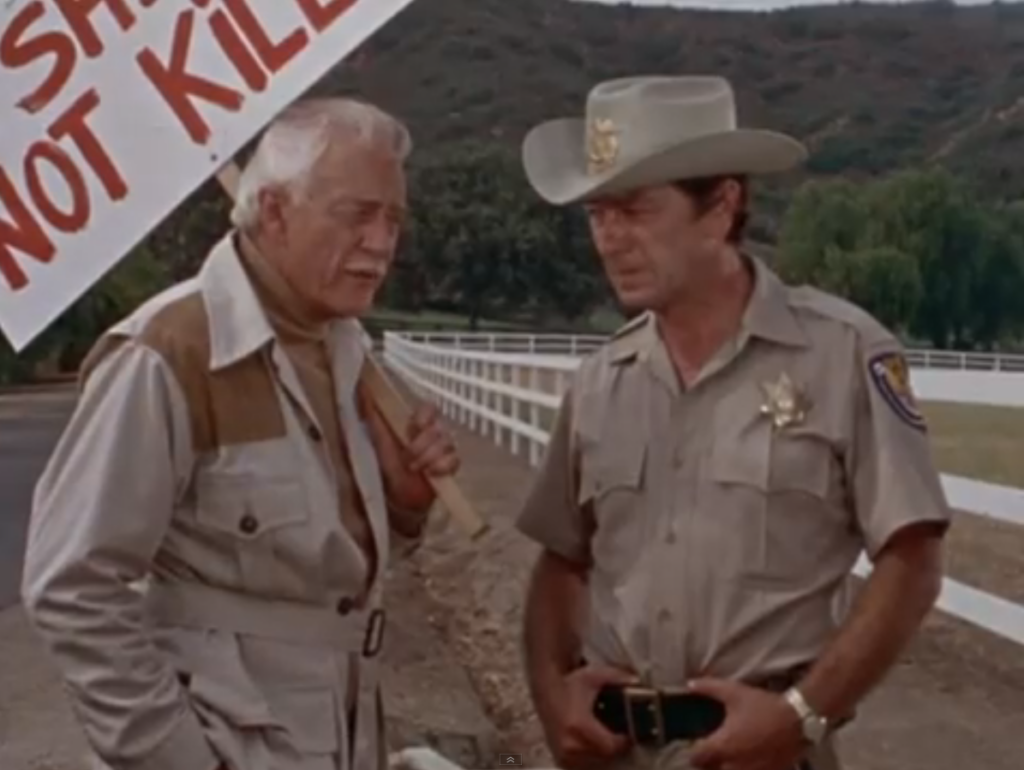Shazam!
Season 1, Episode 3: “Thou Shalt Not Kill”
Original airdate: Sept. 21, 1974
The Secrets of Isis
Season 1, Episode 3: “Spots of the Leopard”
Original airdate: Sept. 21, 1975
Reesav: Superheroes, by their very essence, are meant to serve as role models, embodying ideals for those who look up to them.
While we can never hope to replicate their extraordinary abilities or engage in epic battles on the same scale, it’s their inherent goodness and character that should impart valuable lessons from their adventures.
We hold a deep admiration for Superman, as he protects us and utilizes his strength for benevolent purposes despite being an extraterrestrial with no earthly obligations. We hold Batman in high regard for his unwavering commitment to preserving life and his frequent reliance on intellect as much as physical prowess to vanquish his adversaries.
Wonder Woman, too, earns our respect for demonstrating that women possess just as much strength and resilience as men.
Even though their feats may occasionally appear far-fetched or lighthearted, when executed skillfully, there remains a fundamental idealism that sustains the virtue of their actions.
However, there’s a distinction between a hero demonstrating their goodness through their actions and excessively hammering the point home in a manner that feels as uncomfortable as a pillowcase filled with gravel.

This was the impression I got while watching a double feature of “Shazam!” and “The Secrets of Isis,” two superhero shows produced by Filmation for CBS in the mid-1970s.
“Shazam!” is an adaptation of the DC Comics superhero Captain Marvel, now called Shazam, to avoid legal issues and character confusion. It tells the story of the young man Billy Batson, chosen by a group of elders as a force for good in the world.
“The Secrets of Isis” is a unique property in which a mild-mannered schoolteacher, Andrea Thomas, discovers an amulet and becomes the reincarnation of the Egyptian goddess Isis.
Both heroes are dedicated to promoting goodness and rectifying injustices, either by traveling the countryside in an RV or by addressing the problems of their students.
My description doesn’t fully convey how lacking these shows are. They might be among the worst I’ve seen while reviewing (yes, even worse than “Scarecrow and Mrs. King”). These episodes were produced on a tight budget, written with little finesse, and filled with wooden performances.
“The Secrets of Isis” had some novelty as a unique property and was the first female superhero on weekly TV, predating even the Wonder Woman pilot movie. It had a moment or two that I found enjoyable.
“Shazam!” was simply dreadful, and not even the presence of an actor named Les (Les Tremayne as Mentor, to be precise) could prevent it from feeling like an after-school special that I’d like to believe even the most bored teacher would think twice about showing.
What disappointed me the most about these episodes was just how uninspiring everything that unfolded in them was. Sidant and Kerensa discussed the importance of having stakes in one of their Wonder Woman discussions, and the absence of real stakes in these episodes was almost laughable.
Captain Marvel had to rescue a horse from being harmed by a malevolent cowboy, while Isis had to track down a burglar and prove the innocence of one of her student’s fathers.
Sure, we’ve encountered some villains that were impossible to take seriously in the past (“Great Caesar’s Ghost,” for example), but the fact that superheroes endowed with the powers of elders and gods spent their time organizing lackluster protests and investigating petty crimes was headache-inducing.

What made it worse was the complete lack of subtlety in the way the moral lessons were clumsily inserted, especially in “Shazam!”—Billy received a series of three or four messages from the crudely animated elders and had flashes of them at various points in the episode, to the extent that one can imagine him zoning out for a full minute, frustrating everyone around him as they attempted to get his attention.
Moreover, in terms of superhero prowess, both Captain Marvel and Isis came across as incredibly unimpressive. We’ve discussed extensively in this roundtable how challenging it can be to bring superheroes to life on the small screen without a proper budget, but this was just disheartening.
It was quite amusing how both episodes followed a parallel structure that was similarly lackluster: the hero remained absent for over half the episode, and when they finally appeared, one person excitedly said their name and no one else seemed to react.
Their sole duty was to lift a conspicuously fake piece of wood off a person or horse and offer some platitudes. Fortunately, Isis at least had a chance to demonstrate her powers in a later scene by lifting a car with a wave of her hand, while Captain Marvel’s powers were used to obtain a court order.
The scene of Captain Marvel leaving the courthouse was painfully weak, carrying the injunction, presumably obtained with the help of his sidekick, Notary Boy.
So, “underwhelmed” doesn’t even begin to describe it. The only bit of enjoyment I derived from either of these episodes was the reminder, thanks to the RV in “Shazam!” and the fact that Andrea was a chemistry teacher in “The Secrets of Isis,” that Breaking Bad would be returning next month.

That reminder was more engaging in a five-second commercial than either of these episodes was in a half-hour.
Also Read: Roundtable Review: Battlestar Galactica, “The Long Patrol”
Nirajan: Shows like “Shazam!” and “The Secrets of Isis” highlight one thing above all else: Being a superhero on TV isn’t as straightforward as it might seem. Well, actually, these shows underscore the difficulty in creating good, or even passable, superhero television.
Reesav has already addressed many of the major issues with these two episodes, so I won’t dwell on them any further.
However, I found it quite entertaining to observe the parallel structure of these episodes, which isn’t surprising considering they aired in the same time slot starting in 1975 and were developed by the same team.
It’s bad enough that they were entrusted with a single show to mess up, let alone two potentially.
However, these shows, in my opinion, reflect the kind of disregard (or lack of it) that television had for superheroes for a very long time, at least until “The Incredible Hulk” came along.
We can forgive some shortcomings in “The Adventures of Superman” and “Batman” due to their vintage nature, but it’s also because many of us have a deep affection for those characters. Yet, honestly, those shows were rather basic in their plotlines and character development.
It’s possible that the industry’s aim to cater to a young audience is a significant reason these shows existed in the form they did – vibrant colors, simplistic plots, some flying around, and it’s over.
However, it’s worth considering how Hollywood perceived these characters before “The Incredible Hulk” or Tim Burton’s “Batman” films. No one thought they could, or should, be taken seriously.
This perspective extended all the way down to the lower tiers of the TV industry, where shows like “Shazam!” and “The Secrets of Isis” found their place. Given this context, it’s not surprising that these episodes turned out poorly.
The acting is subpar, the writing lacks depth, the pacing is off, and the special effects leave much to be desired, to name just a few issues.

Nonetheless, I believe it’s essential that we watch them. There was a time when superheroes didn’t dominate the box office or pop culture in general. This is a fascinating snapshot of where they once were and how much they have evolved.
Sidant: Folks, I admit I’m not a big fan of either of these shows. I find “Shazam!” particularly unimpressive, with few redeeming qualities (though I have a slight fondness for “Isis,” it’s still not top-tier).
However, Reesav, your strong dislike of these shows has spurred me to defend them, if only slightly!
I see your point. These shows were not designed for adults or even for the audience of mid-1970s teenagers. They were primarily created with mid-1970s 8-year-olds in mind, envisioning them watching while enjoying their morning cereal in footie pajamas.
They reflect the concerns of that time when production companies, TV stations, networks, and parents were worried about violence in television programming, especially when aimed at kids.
Both shows even credited education advisers, each holding a PhD, most likely to ensure the delivery of a non-violent and moral message. While these messages may appear heavy-handed throughout the episodes, they are not inherently bad.
In fact, I find the way “Shazam!” conveys its message more appealing than “Isis” does.
In this regard, it’s quite interesting that “Shazam!” essentially encouraged kids to protest laws legally and peacefully if they disagreed with them.
Although Captain Marvel obtaining a court order may seem absurd and somewhat undermines the message (“Hey, kids, if protesting doesn’t work, find someone with a lot more power than you to influence the government!”), it still promotes nonviolence and standing up for your rights.
I believe these are valuable lessons that our scripted media today could benefit from incorporating more often.

Isis’s message may not be entirely clear (it seems to be something like “Trust your parents,” which might not always be the best advice for all kids, depending on their circumstances).
However, there are still positive aspects to take away from it. Reesav, you mentioned that Isis predates Wonder Woman, and I believe it serves as a great predecessor. Here we have a superhero show with a strong and narratively compelling female lead in Andrea, who also happens to be a chemistry teacher and has an interest in archaeology.
A woman in science, as the lead character, who’s also a superhero—this is fantastic from a representation perspective. Today, it’s rare to find a character who possesses even one of those traits, let alone all three.
I can only point to Princess Bubblegum from Adventure Time, and she’s a bit eccentric.
So, no, neither show is outstanding and perhaps not even particularly good, but they do try to convey a positive message, and that’s something worthy of acknowledgment.
Abishek: It appears that both “Shazam!” and “Secrets of Isis” were designed with an educational purpose in mind, serving as shows aimed more at imparting moral lessons than setting up abstract battles of good versus evil with capes and dramatic clashes.
There’s a significant issue with this kind of setup for a television show, which I like to refer to as the “Very Special Episode Conundrum.” Regardless of how earnestly you attempt to write it, the fact that the show is designed to convey a moral lesson to the audience forcibly makes it challenging to take seriously.
Even these two shows appear to approach the lesson-teaching aspect differently: in “Shazam!,” the central character is a young boy mentored by an older man (and by animated representations of Greek heroes from the past), while in “Isis,” the main character is the teacher and scientist, Andrea Thomas herself.
In the former, the intended audience likely relates to Billy Batson, whereas in the latter, they are meant to heed the wise words of Andrea, also known as Isis.
Both shows adhere to the same episodic structure, which involves introducing the lesson, reinforcing it through incredibly contrived developments in the plot and character behavior, concluding with a brief speech about the importance of kindness or a similar virtue, and ending with a cheesy one-liner because, after all, it’s television.
However, this structure essentially requires that everyone in the story conform to the way the writers wish everyone else in the world to behave, leaving no room for dissenting or alternative perspectives.

The author argues that using new technologies for education is ineffective and a waste of money and resources. They suggest that traditional educational methods are better.
The author also criticizes the unrealistic and stereotypical representation of women and minorities in educational shows. They use the example of the character of Isis from the show “Isis,” arguing that her portrayal as a woman of science is unrealistic and optimistic.
The author then quotes Nichelle Nichols, who played Uhura on “Star Trek,” arguing that the best way to represent women and minorities on television is to show them as real people with complex lives. Here’s Nichols quoting Goldberg:
She said, ‘Well when I was nine years old Star Trek came on,’ and she said, ‘I looked at it and I went screaming through the house, “Come here, mum, everybody, come quick, come quick, there’s a black lady on television and she ain’t no maid!”‘ And she said, ‘I knew right then and there I could be anything I wanted to be, and I want to be on Star Trek.’
Trekkies, civil rights activists, and feminists are familiar with the story of Nichelle Nichols herself, who was prepared to leave the original Star Trek until Dr. Martin Luther King Jr., the man most commonly associated with the civil rights movement of the 1950s and 1960s, convinced her to stay on for the same reason that Whoopi Goldberg ran screaming through her house.
This is a powerful lesson in representation, one that sticks in the mind more firmly than any television show’s attempt to present a vision of human society at its best—an ambition shared by most of the Treks and Shazam! and The Secrets of Isis.


